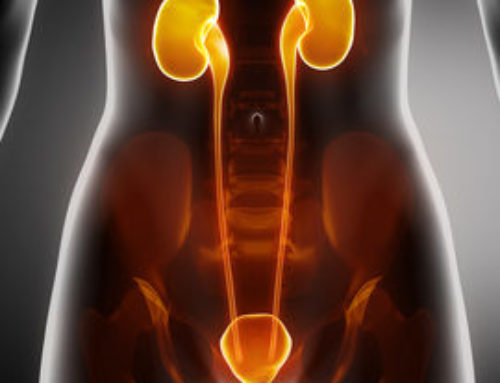 Motherhood at 40 plus
Motherhood at 40 plus
Having your first baby and becoming a mother in your 40s has become an increasingly popular choice for many women in the UK.
More and more women and their partners are now taking the active decision to delay their fertility and starting a family, instead choosing to pursue successful careers, achieve financial security, and settle into stable relationships before embarking on pregnancy and motherhood. Whereas, back in the 1970s and 80s women often had their first baby while in their mid-20s, recent figures released from the Office for National Statistics show that this trend has now shifted. In fact, in 2006, 25,400 women became mothers at the age of 40 or above; this was a notable six per cent increase on the previous year! [Include updated ONS stats]
This, arguably, demonstrates that there is neither a right nor a wrong time for a woman to become pregnant and enter motherhood.
However, while the trend to delay motherhood may be growing in popularity with women and their partners, this is causing concern amongst obstetricians and gynaecologists who cite the hazards of entering pregnancy in later ‘reproductive’ life. Research shows that with increasing maternal age there is a greater risk of birth defects (also called ‘congenital abnormalities’), such as Down’s syndrome; high blood pressure (‘hypertension’); diabetes in pregnancy (called ‘gestational diabetes’), and other complications during pregnancy and the birth. This feature is too short to go into these issues in detail, but there are now specific screening tests and frequent observations taken in pregnancy to alert everyone to the possibility that all might not be well.
While the research evidence shows us that women who become pregnant in their 40s are at increased risk of developing the conditions previously mentioned, this needs to be put into context because it is recognised that pregnancy can be a risk to women at any age. Therefore, for many women aged 40 and over, pregnancy and birth will follow an uneventful pathway and both mother and baby will be well and healthy. What appears to be of more importance is that women are following a healthy lifestyle, as this is more likely to lead to a successful pregnancy and birth outcome than where women are unhealthy or unwell, largely regardless of their age.
 There is now research evidence that also suggests women who become mothers in their 40s, are less likely to suffer the more problematic physical symptoms that are commonly associated with the female menopause, for example, osteoporosis. It is believed that women are protected from these adverse symptoms because of the increased levels of female hormones (progesterone and oestrogen) that are circulating around the woman’s body during pregnancy and in the postnatal period. This is particularly the case where mothers choose to exclusively breastfeed for the first six months of their baby’s life.
There is now research evidence that also suggests women who become mothers in their 40s, are less likely to suffer the more problematic physical symptoms that are commonly associated with the female menopause, for example, osteoporosis. It is believed that women are protected from these adverse symptoms because of the increased levels of female hormones (progesterone and oestrogen) that are circulating around the woman’s body during pregnancy and in the postnatal period. This is particularly the case where mothers choose to exclusively breastfeed for the first six months of their baby’s life.
However, some people have accused 40 plus mothers of being selfish, because by delaying pregnancy and parenthood, they are putting their babies at increased risk of congenital abnormalities and problematic births. However, even where women at 40 or over are more likely to have pregnancies affected by Down’s syndrome, these women still have a 99 in 100 chance of having a perfectly healthy baby.
Society’s outlook on older mothers can still be rather ageist too. I have witnessed the disapproving looks towards 40 plus mums in the school playground, or seen pushing their baby in its pram. Yet, by comparison, men who father children in their older years – sometimes at a substantially older age – barely raise an eyebrow!
Many over 40 mums demonstrate that they have entered motherhood with their ‘eyes wide open’ and are in no way delusional about the physical and emotional challenges that lie ahead of them. Undoubtedly, older mothers will be very aware of their age as it relates to their child’s growth and development, and appreciate that when their child starts secondary school they will be entering their 50s. However, it’s how we feel on the inside that really matters; there are plenty of fit and healthy midlife mums crawling around on the carpet with their toddlers and waiting at the school gates, just the same as their younger counterparts!
Mums in their 40s have often had time and the life experiences to help them better cope with the emotional and social aspects of becoming a mother. They are more likely to have completed all their travelling in their 20s and 30s and by the time they become a mum, tend to be homeowners who are living in a stable relationship with a supportive partner and a strong network of friends and family for additional support. The life events and experiences that women have lived and witnessed through their former years will have helped to build their self-confidence, wisdom and self-esteem. This often means that when they enter motherhood, they can provide their newborn baby with a genuinely deep sense of security, because they have already had the years to develop and cultivate responsibility, patience, tolerance and understanding.
Because they have often planned the timing of their pregnancy, mums in their 40s also tend to be a lot more prepared to devote more of their time and energy solely to their baby’s care needs. Because they will have probably embarked on maternity leave from long-term employment or an established career, they are also more likely to have increased financial security. This means that the financial implications of motherhood often tend to be of less concern to them.
Becoming a mum at any age, is a major life-changing event. Whether you choose to start a family in your 20s, 30s or 40s, the important thing is that you and your partner decide when it’s the right time for you! There are a range of health care professionals who are available for advice and support during pregnancy and in the transition to parenthood. These can be your midwife, health visitor or GP, as well as various other groups and organisations outside health care services who can offer additional social networks and discussion forums.
Increasingly, we need to respect that whether there has been a conscious, informed decision to delay starting a family to midlife, or it has happened as a result of unplanned circumstances, women and their partners need information and support to help them if the situation does become more complicated than anticipated. So while the maternity services may be more concerned about this rising trend, they will continue to offer each woman the individual care that she and her baby need.











